
Majestic Tabuk Mountains: A Natural Wonder of Saudi Arabia
The Tabuk Mountains, located in the northwestern region of Saudi Arabia, present an awe-inspiring landscape for nature enthusiasts and adventure seekers alike. These mountains, with their rugged peaks and expansive valleys, offer a unique blend of natural beauty and cultural heritage. Whether you are a hiker, a history buff, or simply someone who appreciates breathtaking vistas, the Tabuk Mountains will captivate your senses. One of the highlights of the Tabuk Mountains is the diverse flora and fauna that thrive in this arid region. Despite the harsh climate, the mountains are home to various species of plants and animals, many of which are endemic to the area. This makes it a fascinating destination for wildlife watchers and photographers. The dramatic rock formations and ancient rock art scattered throughout the region add an extra layer of intrigue, giving visitors a glimpse into the area's rich historical past. Adventure activities are abundant in the Tabuk Mountains. From trekking and rock climbing to off-road driving and camping under the stars, there's something for every thrill-seeker. The cooler climate in the higher altitudes offers a refreshing escape from the intense heat of the Saudi desert, making it an ideal spot for outdoor activities year-round. Additionally, the warm hospitality of the local Bedouin tribes adds a cultural dimension to your visit, enriching your experience with stories and traditions passed down through generations.
Local tips in Tabuk Mountains
- Visit during the cooler months from October to March for the most comfortable weather conditions.
- Hire a local guide to explore hidden gems and learn about the area's history and culture.
- Pack plenty of water and sun protection, as the climate can still be harsh even in cooler months.
- Consider renting a 4x4 vehicle to navigate the rugged terrain more easily.
- Respect local customs and traditions, especially when interacting with Bedouin tribes.
Majestic Tabuk Mountains: A Natural Wonder of Saudi Arabia
The Tabuk Mountains, located in the northwestern region of Saudi Arabia, present an awe-inspiring landscape for nature enthusiasts and adventure seekers alike. These mountains, with their rugged peaks and expansive valleys, offer a unique blend of natural beauty and cultural heritage. Whether you are a hiker, a history buff, or simply someone who appreciates breathtaking vistas, the Tabuk Mountains will captivate your senses. One of the highlights of the Tabuk Mountains is the diverse flora and fauna that thrive in this arid region. Despite the harsh climate, the mountains are home to various species of plants and animals, many of which are endemic to the area. This makes it a fascinating destination for wildlife watchers and photographers. The dramatic rock formations and ancient rock art scattered throughout the region add an extra layer of intrigue, giving visitors a glimpse into the area's rich historical past. Adventure activities are abundant in the Tabuk Mountains. From trekking and rock climbing to off-road driving and camping under the stars, there's something for every thrill-seeker. The cooler climate in the higher altitudes offers a refreshing escape from the intense heat of the Saudi desert, making it an ideal spot for outdoor activities year-round. Additionally, the warm hospitality of the local Bedouin tribes adds a cultural dimension to your visit, enriching your experience with stories and traditions passed down through generations.
When is the best time to go to Tabuk Mountains?
Iconic landmarks you can’t miss
Hilton Garden Inn Tabuk
Experience comfort and convenience at Hilton Garden Inn Tabuk, your perfect base for exploring the beauty and history of Saudi Arabia.
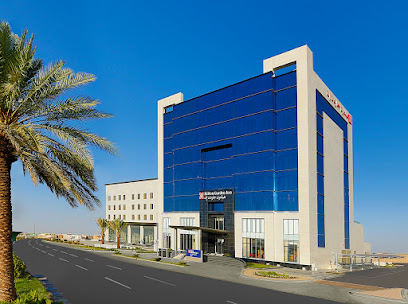
Tubuk Fortress
Explore Tubuk Fortress in Tabuk, Saudi Arabia - a historic archaeological museum showcasing the rich cultural heritage and history of the region.
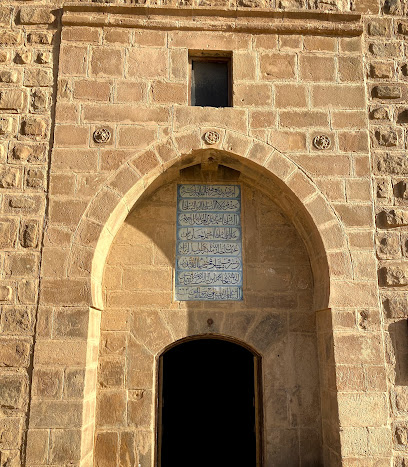
Tabuk Attraction Mud House
Explore the heritage and traditional architecture of Saudi Arabia at the Mud House in Tabuk, a cultural experience that reveals the essence of Arabian life.
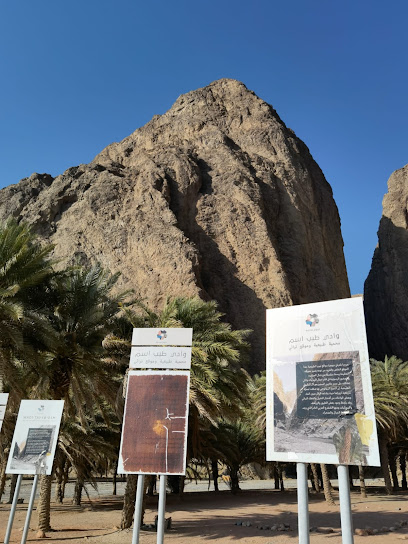
Green Land
Explore Green Land Zoo in Tabuk for an unforgettable family adventure filled with exotic wildlife, engaging exhibits, and interactive learning experiences.
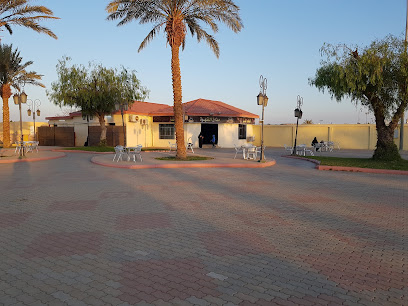
Al Mu'azzam Fort
Discover the historical marvel of Al Mu'azzam Fort, a stunning symbol of Saudi heritage and architectural brilliance, perfect for history enthusiasts and travelers.
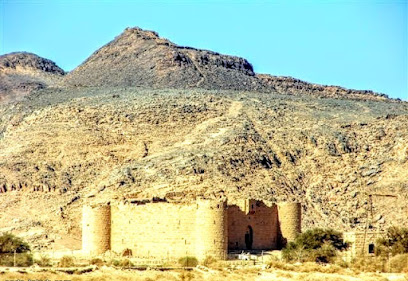
Saptco tabuk
Explore the enchanting region of Tabuk, Saudi Arabia from Saptco Tabuk, your essential bus station for local and regional travel.
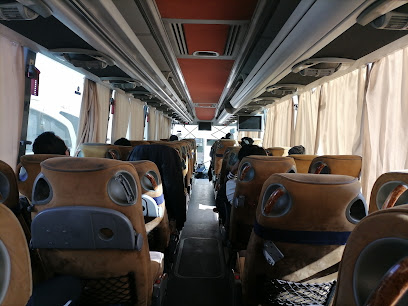
Tabuk Gate Square
Experience the vibrant heart of Tabuk at Tabuk Gate Square, a cultural landmark where history and modernity intertwine in Saudi Arabia.
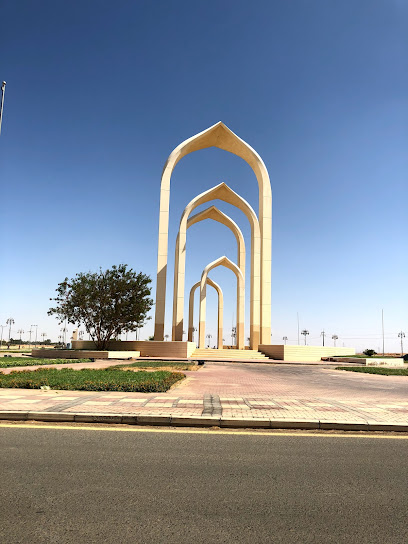
Rays Lake
Discover the untouched beauty of Rays Lake in Saudi Arabia, a paradise for nature lovers and adventure seekers alike.
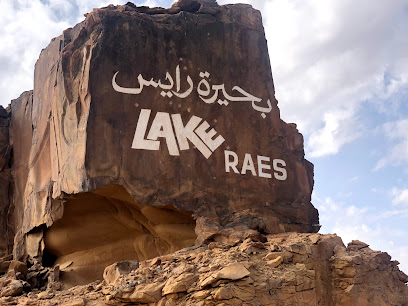
Tabuk Water Tower
Discover the architectural marvel of Tabuk Water Tower, a blend of modern design and historical significance in the heart of Tabuk, Saudi Arabia.
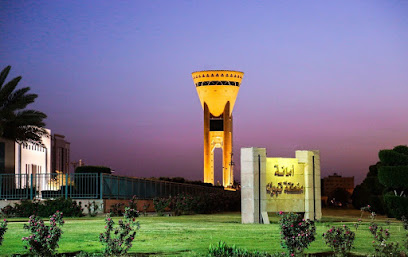
Prince Fahad bin Sultan
Explore the historic Prince Fahad bin Sultan Castle in Tabuk, a stunning blend of architectural beauty and rich Saudi heritage.
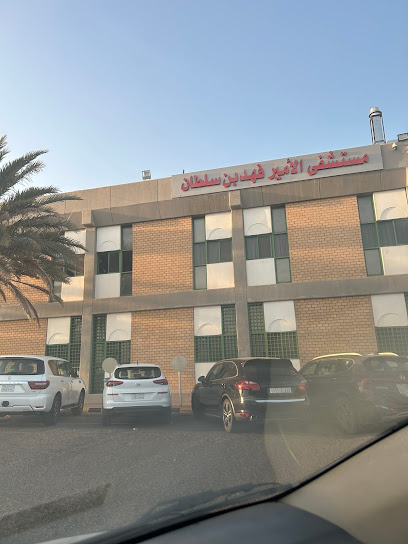
Tabuk Central Park
Explore the serene beauty of Tabuk Central Park, a lush green escape in the heart of Tabuk, perfect for relaxation and cultural immersion.
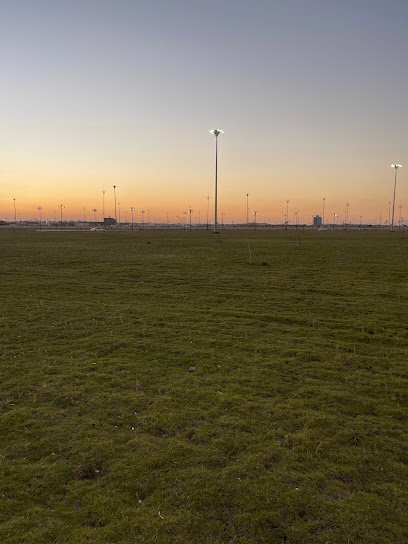
مجسم عام الخط العربي
Explore the beauty and history of Arabic calligraphy at the Majestic Arabic Calligraphy Museum in Tabuk, a cultural gem for every traveler.
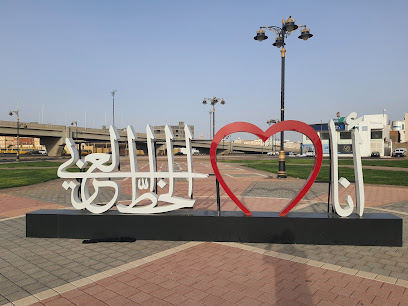
Desert Paths
Discover the beauty of Saudi Arabia's deserts with Desert Paths, offering tailored tours for every adventure seeker and culture enthusiast.
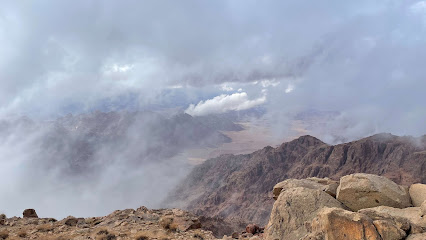
جبال واردات
Discover Jabal Waridat, a stunning mountain in Tabuk, where nature's beauty unfolds in unique geological formations and breathtaking views.

Highest point, Sharma - Tabuk highway
Discover the highest point on the Sharma - Tabuk highway, where breathtaking views meet rich history in the heart of Saudi Arabia's stunning landscapes.
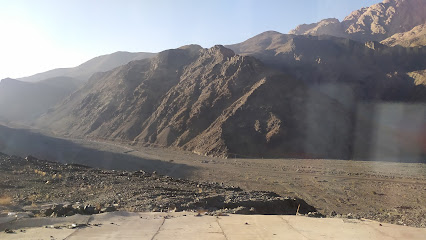
Unmissable attractions to see
King Abdulaziz Park
Explore the lush greenery and vibrant landscapes of King Abdulaziz Park, a serene oasis in the heart of Tabuk, Saudi Arabia.
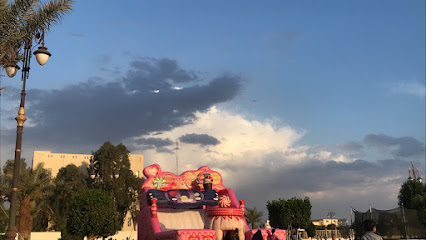
Al Rajhi Park
Discover the serene beauty of Al Rajhi Park in Tabuk, a perfect garden retreat for relaxation, family gatherings, and nature exploration.
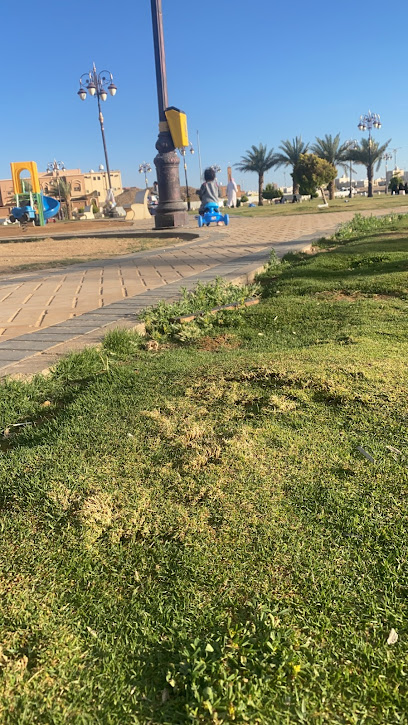
Tabuk Airport Park
Experience the serene charm of Tabuk Airport Park, a beautiful green space for relaxation and family fun near the airport in Tabuk.
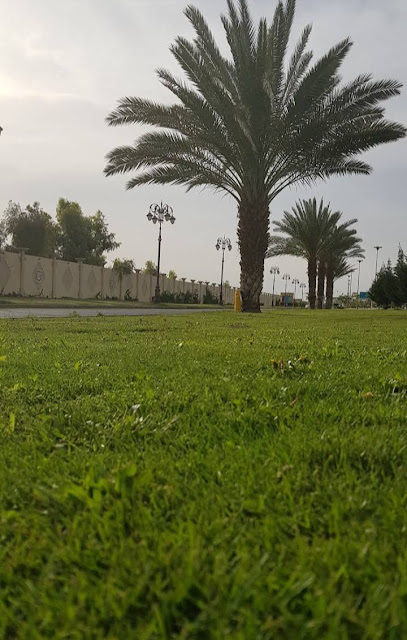
Tabuk Attraction Mud House
Explore the Mud House in Tabuk, a heritage museum that showcases the rich traditions and history of Arabian culture.
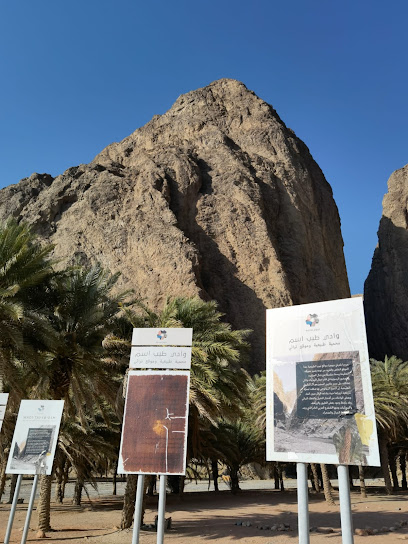
Green Land
Discover the wonders of wildlife at Green Land Zoo, a captivating family-friendly attraction nestled in the heart of Tabuk, Saudi Arabia.
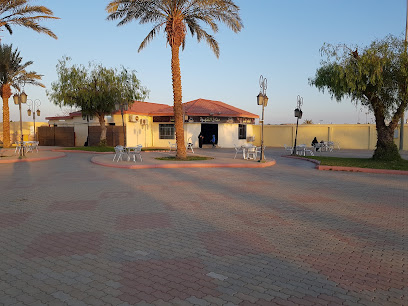
Al Mu'azzam Fort
Discover the cultural heritage and architectural beauty of Al Mu'azzam Fort, an iconic historical landmark in Saudi Arabia, perfect for every traveler.
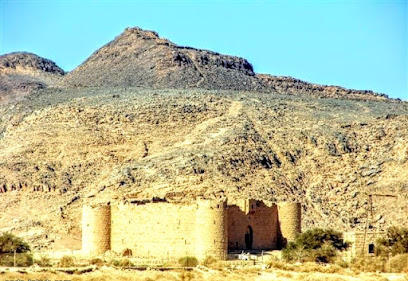
Rays Lake
Discover the tranquil beauty of Rays Lake in Saudi Arabia, a perfect escape for nature lovers and adventure seekers alike.
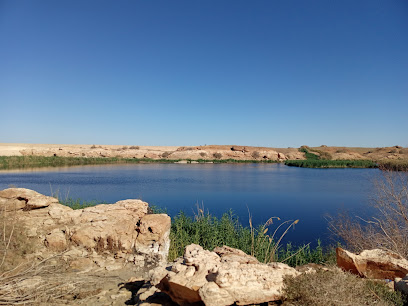
I ️ ️ Tabuk Sign
Experience the charm of Tabuk at the iconic Tabuk Sign, a stunning landmark perfect for unforgettable photos and cultural exploration.
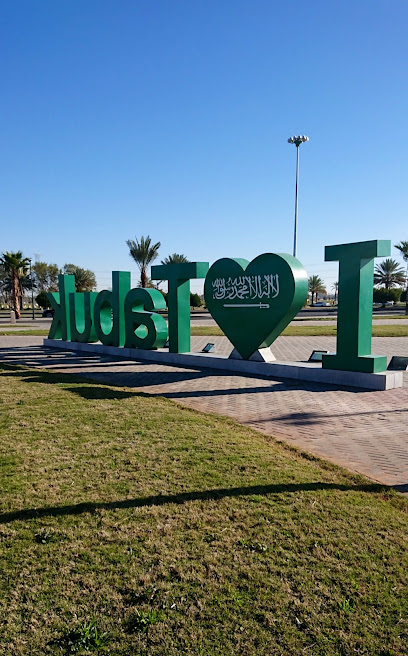
Tabuk Central Park
Explore the tranquil beauty of Tabuk Central Park, a serene garden retreat perfect for family outings and leisurely strolls in the heart of Tabuk.
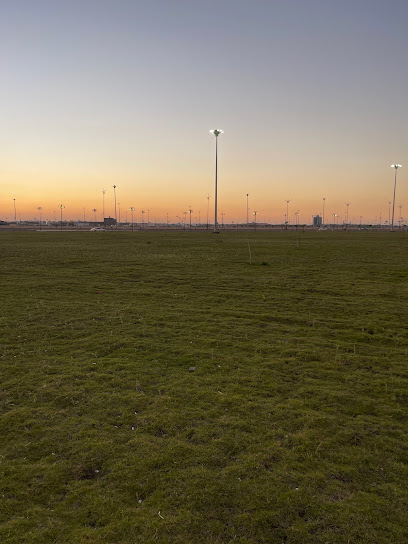
مجسم عام الخط العربي
Explore the beauty of the Arabic script at the Arabic Calligraphy Museum in Tabuk, showcasing the rich history and artistry of a timeless tradition.
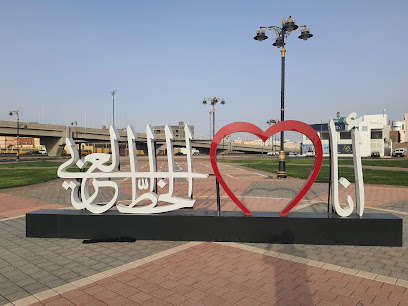
متنزه نواف العطوي الجبلى تبوك السعودية
Experience the breathtaking beauty and rich cultural heritage of Al-Nafud Desert, a state park in Tabuk, Saudi Arabia, perfect for adventure and tranquility.

Essential places to dine
Western Road Steak & Grill
Experience the finest American dining at Western Road Steak & Grill in Tabuk - where every bite is a celebration of flavor.
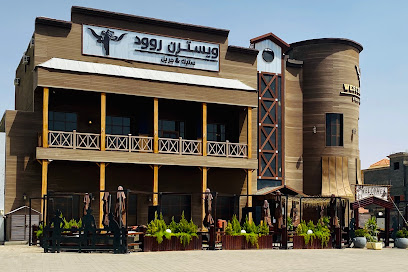
Al-Qaryah Al-Turathiyah Restaurant
Discover authentic Saudi cuisine at Al-Qaryah Al-Turathiyah Restaurant in Tabuk, where tradition meets flavor in every bite.
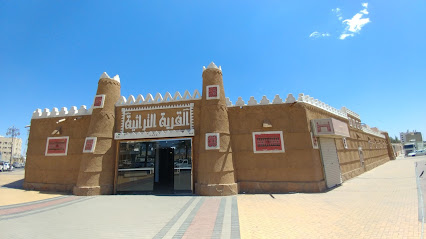
Lavilla restaurant
Discover Lavilla Restaurant in Tabuk – where local flavors meet international cuisine in a warm and inviting atmosphere.
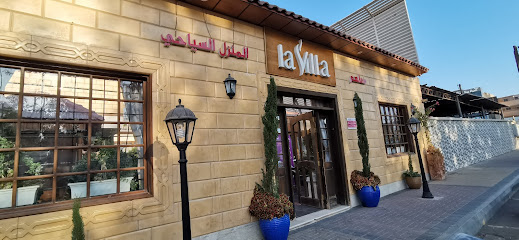
Atoll
Discover the exquisite flavors at Atoll in Tabuk - where fusion cuisine meets exceptional service in an inviting atmosphere.
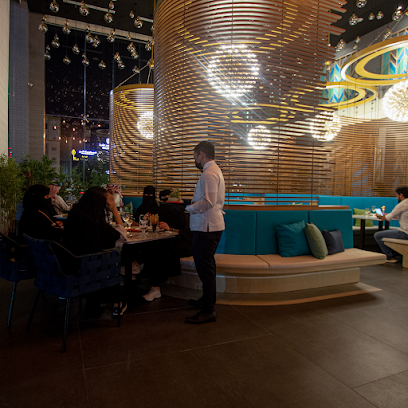
Top Grill Restaurant and Lounge
Discover exquisite barbecue delights at Top Grill Restaurant and Lounge in Tabuk - where fine dining meets culinary excellence.
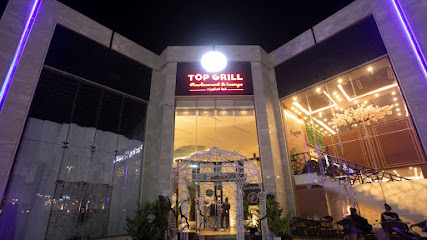
Awaar
Experience the exquisite flavors of Middle Eastern cuisine at Awaar in Tabuk - where every meal is a celebration of taste.
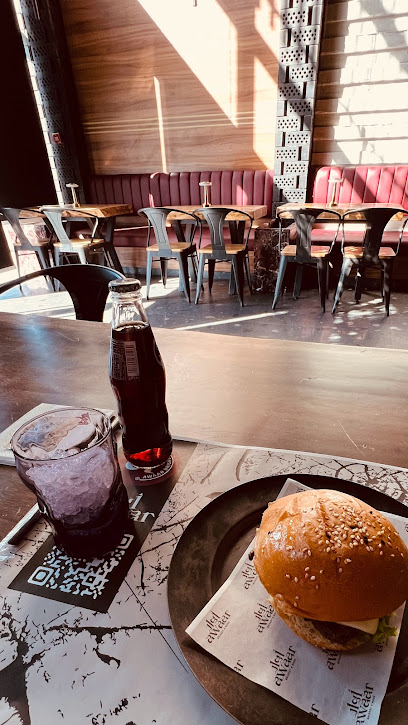
Al Hazara India Restaurant
Experience authentic Indian cuisine at Al Hazara India Restaurant in Tabuk—delightful flavors and warm hospitality await every visitor.
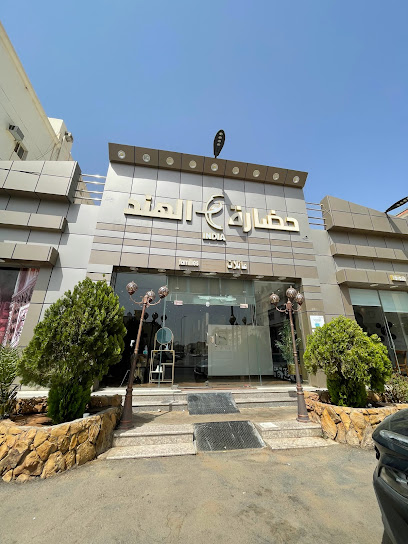
فارس ستيك هاوس - Fares' Steakhouse
Experience the finest steaks and authentic Saudi Arabian hospitality at Fares' Steakhouse in Tabuk.
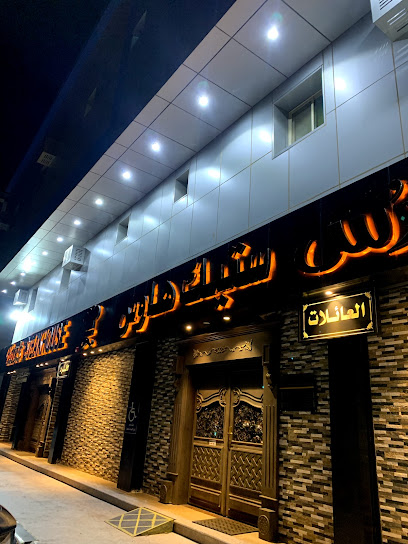
KERALA RESTAURANT
Discover the rich flavors of India at Kerala Restaurant in Tabuk—where every meal is a celebration of authentic cuisine.
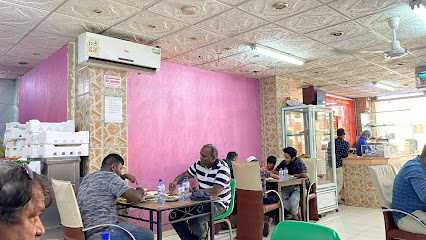
Dorrat Al Akhyar Restaurant
Discover authentic Saudi barbecue at Dorrat Al Akhyar Restaurant in Tabuk – where rich flavors meet warm hospitality.
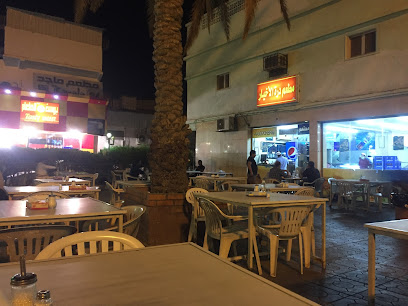
Punjab Restaurant
Discover the rich flavors of Pakistan at Punjab Restaurant - your go-to destination for authentic Pakistani and Indian cuisine in Tabuk.
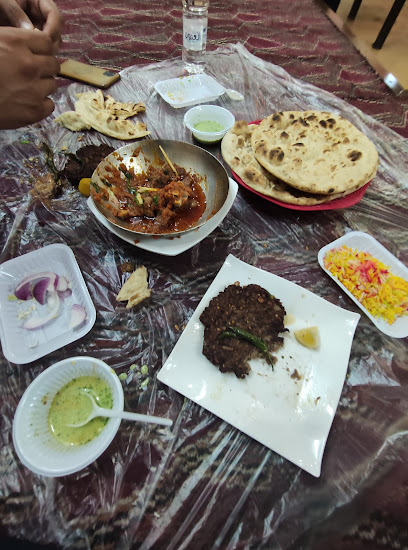
Biryani Hindi Restaurant
Experience authentic Indian flavors at Biryani Hindi Restaurant in Tabuk – home of exquisite biryani and delightful Indian cuisine.
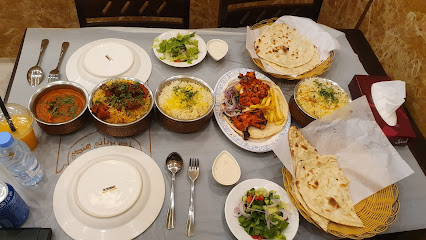
Spectra Restaurant & Cafe
Discover exquisite flavors at Spectra Restaurant & Cafe in Tabuk - where tradition meets modern culinary artistry.
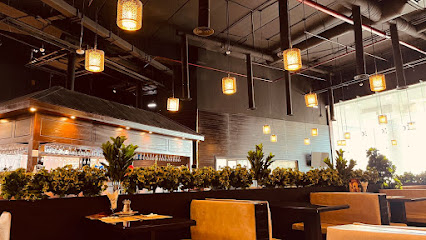
HOTEL THARAVADU
Experience the rich flavors of Keralan cuisine at Hotel Tharavadu in Sharalam, Tabuk – a culinary gem for every food lover.
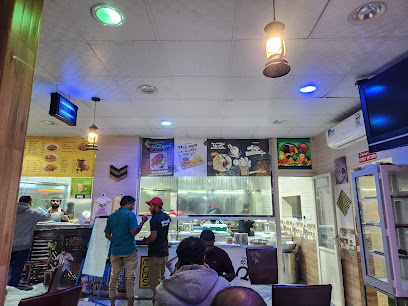
Black pepper Indian restaurant
Discover authentic Indian cuisine at Black Pepper Indian Restaurant in Tabuk – where every meal is a delightful journey through spices and flavors.
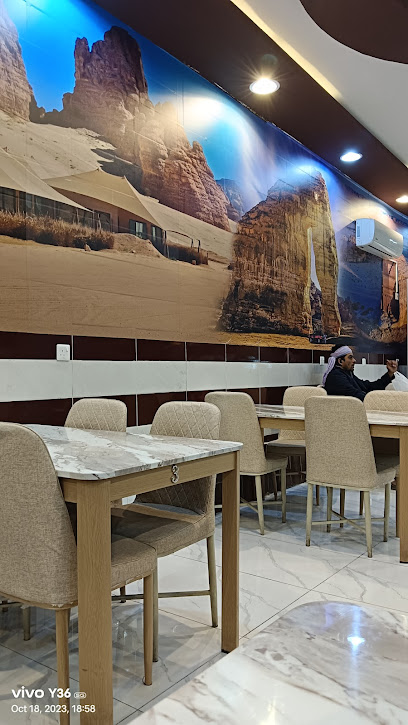
Markets, malls and hidden boutiques
Tabuk Park
Explore Tabuk Park, a premier shopping mall in Saudi Arabia, offering diverse shops, delightful dining, and family-friendly entertainment.
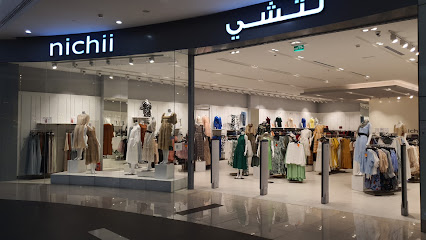
Tabuk Park | تبوك بارك
Explore Tabuk Park, your ultimate shopping destination in Tabuk, Saudi Arabia, featuring diverse shops, dining options, and vibrant local culture.
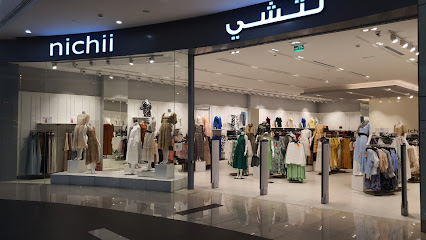
LuLu Hypermarket - Tabuk Park Mall
Experience the best of shopping at LuLu Hypermarket in Tabuk Park Mall, where variety meets quality in a vibrant atmosphere.
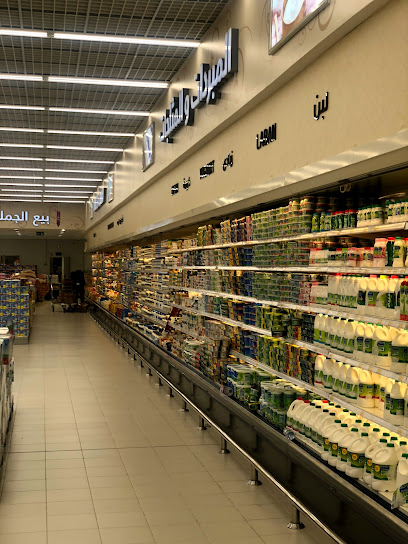
Saving World
Explore the vibrant Saving World Shopping Mall in Tabuk, a shopping haven offering local and international brands, dining, and entertainment for an unforgettable experience.
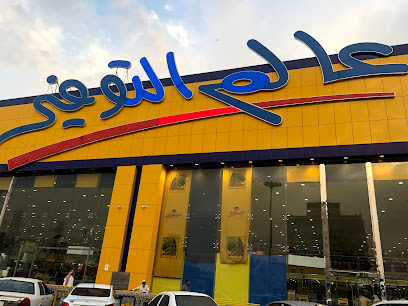
Prince Sultan Bin Abdulaziz International Airport
Experience the modern comforts of Prince Sultan Bin Abdulaziz International Airport, your entry point to the stunning landscapes of Tabuk, Saudi Arabia.
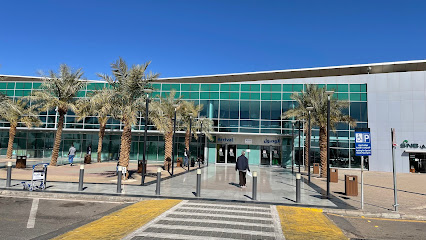
Alhokair Mall
Discover the vibrant shopping experience at Alhokair Mall in Tabuk, offering diverse brands, delightful dining, and family-friendly entertainment.
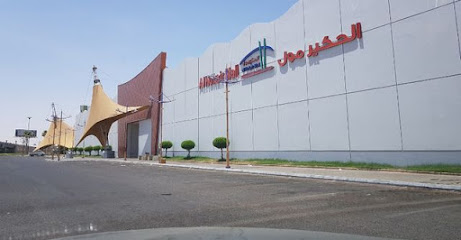
Grand Mall
Experience the ultimate shopping adventure at Grand Mall in Tabuk, where fashion, food, and fun come together in a vibrant atmosphere.
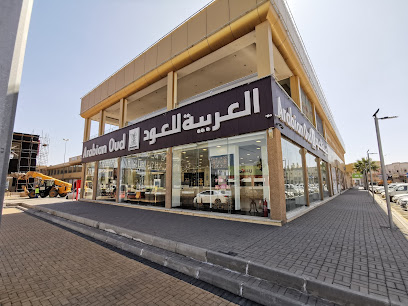
Grand Millennium Tabuk
Discover the epitome of elegance and comfort at Grand Millennium Tabuk, where luxury meets traditional Saudi hospitality.
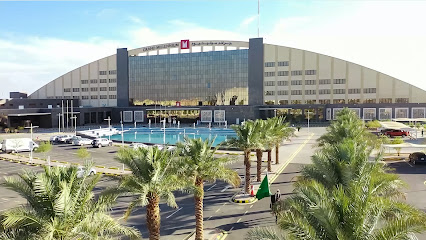
Home Centre
Discover stylish furniture and home accessories at Home Centre in Tabuk, where quality meets affordability for every home.
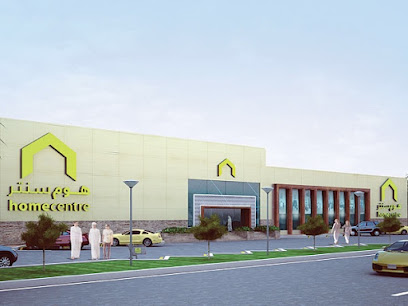
Othaim Markets
Discover the vibrant world of Othaim Markets in Tabuk, where local flavors meet international tastes in a delightful shopping experience.
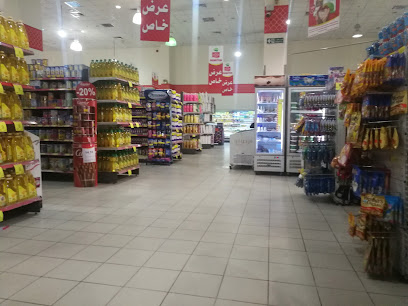
Tamimi Markets | أسواق التميمي
Explore Tamimi Markets in Tabuk for a rich shopping experience with fresh local produce and global goods.
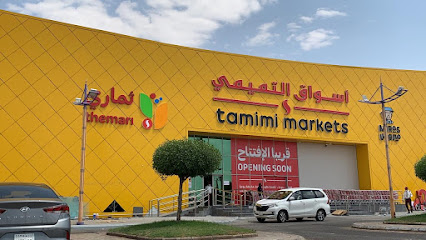
Danube
Experience the vibrant shopping scene at Danube in Tabuk, where quality meets variety in a shopper's dream destination.
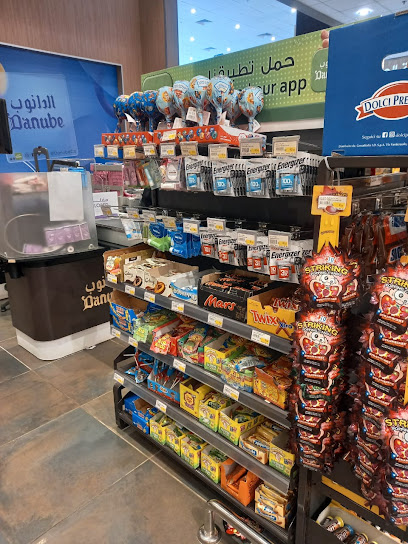
5 Riyal shop
Explore the 5 Riyal Shop in Tabuk for unbeatable deals on groceries and unique local products, perfect for budget travelers.
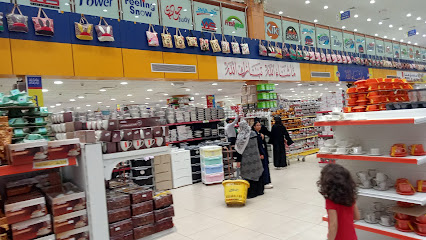
4Tech
Discover the ultimate tech shopping experience at 4Tech in Tabuk, where innovation meets convenience in a vibrant outlet mall setting.
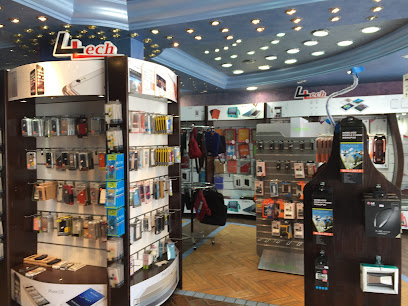
MILAGRO BOUTIQUE
Discover a shopper's paradise at Milagro Boutique in Tabuk, offering diverse shops, delightful dining, and a vibrant atmosphere for all visitors.
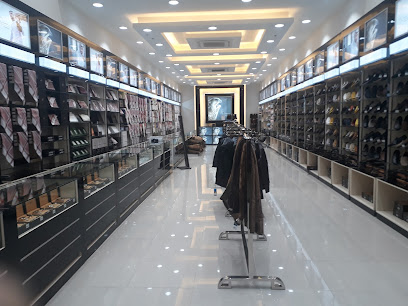
Essential bars & hidden hideouts
Western Road Steak & Grill
Experience the best of American cuisine at Western Road Steak & Grill in Tabuk, where every bite delivers flavor and satisfaction.
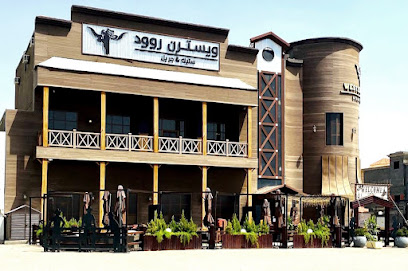
Canephora
Discover Canephora, the perfect cafe in Tabuk for coffee lovers and relaxation seekers, offering a cozy atmosphere and delicious treats.
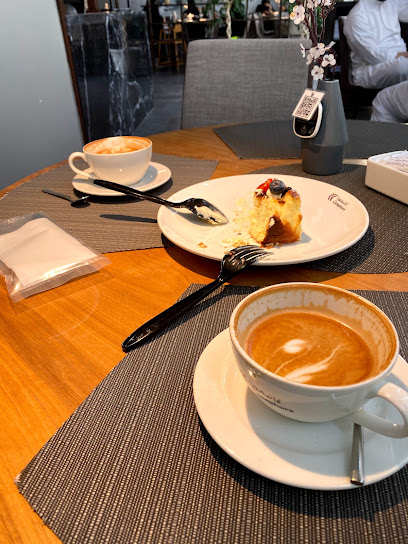
Al-Qaryah Al-Turathiyah Restaurant
Discover the rich flavors and cultural heritage of Saudi Arabia at Al-Qaryah Al-Turathiyah Restaurant in Tabuk.
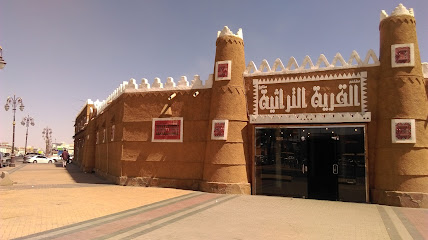
Hilton Garden Inn Tabuk
Discover the perfect blend of comfort and convenience at Hilton Garden Inn Tabuk, your gateway to exploring Saudi Arabia's beautiful Tabuk region.
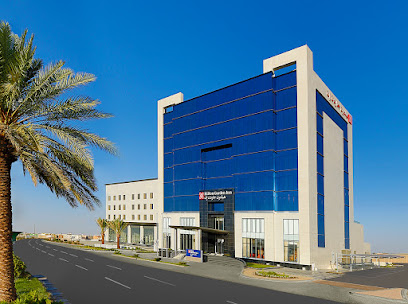
Grand Millennium Tabuk
Discover unparalleled luxury and comfort at Grand Millennium Tabuk, the premier hotel destination in Saudi Arabia's vibrant city of Tabuk.
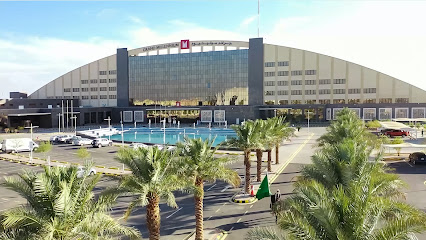
Top Grill Restaurant and Lounge
Experience exquisite fine dining and authentic barbecue flavors at Top Grill Restaurant and Lounge in Tabuk, a culinary haven for food lovers.
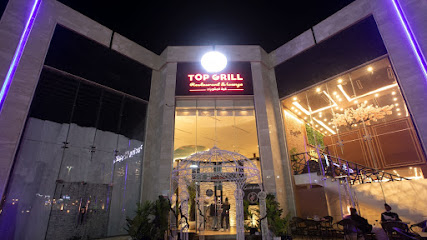
Al Hazara India Restaurant
Savor the rich flavors of India at Al Hazara India Restaurant in Tabuk, where every dish is a celebration of culinary traditions.
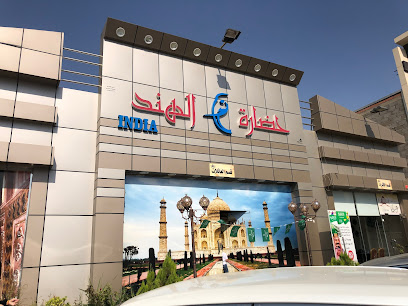
فارس ستيك هاوس - Fares' Steakhouse
Experience the best of Saudi culinary traditions with mouthwatering steaks at Fares' Steakhouse in Tabuk.
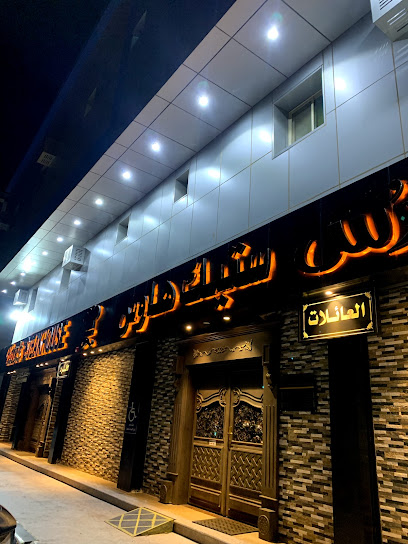
Aral hotel apartments
Experience luxury and local flavors at Aral Hotel Apartments in Tabuk, where comfort meets culinary excellence.
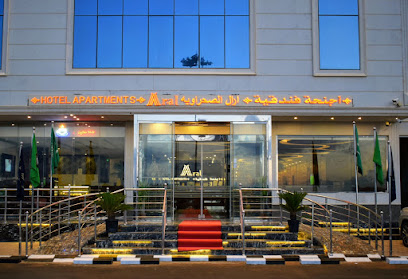
Sheikh Baba Restaurant
Discover the rich flavors of authentic Pakistani cuisine at Sheikh Baba Restaurant in Damaj, a culinary adventure for every food lover.
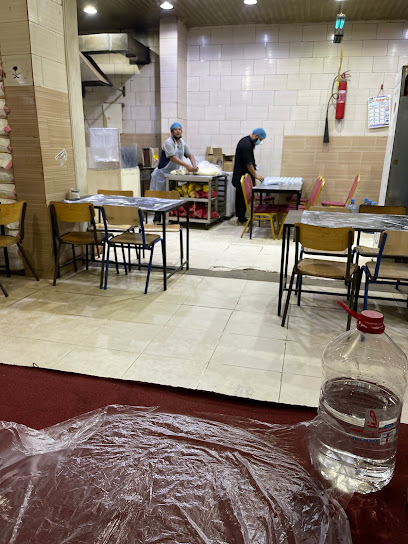
Local Phrases about Tabuk Mountains
-
- HelloMarhaban
[mar-ha-ban] - GoodbyeMa'a as-salama
[ma-a as-sa-la-ma] - YesNa'am
[na-am] - NoLa
[la] - Please/You're welcomeMin fadlik
[min fad-lik] - Thank youShukran
[shuk-ran] - Excuse me/SorryAasif
[aa-sif] - How are you?Kaif halak?
[ka-if ha-lak] - Fine. And you?Bikhair. Wa ant?
[bi-khair. wa ant] - Do you speak English?Hal tatakallam al-ingliziya?
[hal ta-ta-ka-llam al-ing-li-zi-ya] - I don't understandAna la afham
[a-na la af-ham]
- HelloMarhaban
-
- I'd like to see the menu, pleaseOreed an ada al-qadeem, min fadlik
[o-reed an a-da al-qa-deem, min fad-lik] - I don't eat meatAna la aakul al-laham
[a-na la a-a-kul al-la-ham] - Cheers!Saha
[sa-ha] - I would like to pay, pleaseOreed an adfa, min fadlik
[o-reed an ad-fa, min fad-lik]
- I'd like to see the menu, pleaseOreed an ada al-qadeem, min fadlik
-
- Help!Musaidah!
[mu-sai-dah] - Go away!Irhal!
[ir-hal] - Call the Police!Ibdia al-shurta!
[ib-di-a al-shur-ta] - Call a doctor!Ibdia al-tabib!
[ib-di-a al-ta-bib] - I'm lostGhaalabt
[gha-laabt] - I'm illAna mareed
[a-na ma-reed]
- Help!Musaidah!
-
- I'd like to buy...Oreed an ashtar...
[o-reed an ash-tar] - I'm just lookingAna faqat atabathath
[a-na fa-qat a-ta-ba-thath] - How much is it?Kam thamanuh?
[kam tha-ma-nuh] - That's too expensiveHatha ghalin jiddan
[ha-tha gha-lin jid-dan] - Can you lower the price?Hal tastatiu takhfeef althaman?
[hal tas-ta-ti-u takh-feef al-tha-man]
- I'd like to buy...Oreed an ashtar...
-
- What time is it?Kam alsaa?
[kam al-saa] - It's one o'clockHuwa alsaa wahida
[hu-wa al-saa wa-hi-da] - Half past (10)Nusfu min (asharat)
[nus-fu min (ash-a-rat)] - MorningSabaah
[sa-baah] - AfternoonDhuhr
[dhur] - EveningMasa
[ma-sa] - YesterdayAms
[ams] - TodayAl-yawm
[al-yawm] - TomorrowGhadan
[gha-dan] - 1Wahid
[wa-hid] - 2Ithnayn
[ith-na-yn] - 3Thalatha
[tha-la-tha] - 4Arba'a
[ar-ba-a] - 5Khamsa
[kham-sa] - 6Sitta
[sit-ta] - 7Saba'a
[sa-ba-a] - 8Thamania
[tha-ma-ni-a] - 9Tis'a
[tis-a] - 10Ashara
[ash-a-ra]
- What time is it?Kam alsaa?
-
- Where's a/the...?Ayna al...
[ay-na al] - What's the address?Shuwa al-alamat?
[shu-wa al-a-la-mat] - Can you show me (on the map)?Hal tasta'tiuni an urik (al-khari'ta)?
[hal tas-ta-ti-u-ni an u-rik (al-kha-ri-ta)] - When's the next (bus)?Mata al-qutb al-qadim?
[ma-ta al-qutb al-qa-dim] - A ticket (to ....)Tathkhir (ila ....)
[ta-th-khir (i-la)]
- Where's a/the...?Ayna al...
History of Tabuk Mountains
-
The Tabuk Mountains are part of the historical region that was once under the influence of the Nabatean Kingdom. This civilization, renowned for its rock-cut architecture and water management systems, left an indelible mark on the region. Evidence of Nabatean presence can be seen in the form of ancient inscriptions and remnants of trade routes that crisscross the mountains, linking them to the famous city of Petra.
-
One of the most significant historical events associated with the Tabuk Mountains is the Battle of Tabuk, which took place in 630 CE. The battle was a military expedition led by the Prophet Muhammad against the Byzantine Empire. The confrontation did not lead to a full-scale battle, but it was significant in establishing the influence of the early Islamic state in the region. The expedition demonstrated the strategic importance of Tabuk as a point of control and influence.
-
During the Ottoman Empire, the Tabuk region gained strategic importance due to its location on the route to the holy cities of Mecca and Medina. The Ottomans constructed several fortifications in the area to secure these crucial routes and protect against potential threats. One notable example is the Tabuk Castle, built in 1559, which still stands today as a testament to the Ottoman military architecture and their efforts to control the region.
-
In the early 20th century, the Tabuk Mountains witnessed the development of the Hejaz Railway, an ambitious project initiated by the Ottoman Empire. The railway was intended to facilitate the pilgrimage to Mecca and Medina while strengthening Ottoman control over the Arabian Peninsula. The railway passed through the Tabuk region, and remnants of the railway stations and tracks can still be found today, offering a glimpse into this monumental engineering feat.
-
Today, the Tabuk Mountains are part of a rapidly developing region in Saudi Arabia. The city of Tabuk serves as a gateway to the mountains and has seen significant modernization efforts. Despite these changes, the area remains rich in cultural heritage, with local Bedouin tribes maintaining their traditional way of life. Visitors to the Tabuk Mountains can experience a blend of ancient history and contemporary culture, making it a unique destination for those interested in the past and present of Saudi Arabia.
Tabuk Mountains Essentials
-
Tabuk is located in the northwest region of Saudi Arabia. The nearest airport is Tabuk Regional Airport (TUU), which has regular flights from major cities like Riyadh, Jeddah, and Dammam. From the airport, you can rent a car or take a taxi to reach the Tabuk Mountains, which are approximately a 30-minute drive away. Alternatively, you can take a bus from major Saudi cities to Tabuk city, and then hire local transportation to the mountains.
-
Within Tabuk, taxis are the most convenient mode of transportation. Ride-hailing apps like Uber and Careem are also available. For those who prefer to drive, car rental services are plentiful. Public buses operate within the city, but schedules can be irregular, and they may not reach all tourist sites. For a more adventurous experience, consider hiring a local guide with a 4x4 vehicle to explore the more rugged areas of the mountains.
-
The official currency is the Saudi Riyal (SAR). Credit cards are widely accepted in hotels, restaurants, and larger stores, but it is advisable to carry some cash, particularly when visiting more remote areas or smaller establishments. ATMs are available in Tabuk city but may be scarce in mountainous regions, so ensure you have enough cash before heading out.
-
Tabuk and its surrounding areas are generally safe for tourists. However, as with any travel destination, it is wise to stay vigilant. Avoid isolated areas after dark and be cautious with your belongings in crowded places. There are no specific high-crime areas targeting tourists, but it is always best to stay alert and be aware of your surroundings.
-
In case of an emergency, dial 997 for medical emergencies and 999 for police assistance. Tabuk city has several hospitals and clinics, but medical facilities may be limited in more remote areas. It is highly recommended to have travel insurance that covers medical emergencies. Pharmacies are available in Tabuk city where you can purchase over-the-counter medications.
-
Fashion: Do dress modestly. Men and women should avoid wearing shorts and sleeveless tops. Women are advised to wear an abaya in public. Religion: Do respect local customs and Islamic traditions. Avoid public displays of affection. Public Transport: Do be respectful and courteous. Don’t eat or drink on public transport. Greetings: Do greet people with a warm 'As-Salaam-Alaikum'. A handshake is common among men. Eating & Drinking: Do try local dishes and accept hospitality graciously. Don’t eat or drink in public during Ramadan daylight hours.
-
To experience Tabuk Mountains like a local, visit the local souks (markets) to buy traditional Saudi goods and handicrafts. Engage with locals who are often friendly and eager to share their culture. Don't miss the ancient rock carvings and petroglyphs that are scattered throughout the area. For a unique experience, consider camping under the stars in the desert, but make sure to go with a local guide for safety.
Trending Landmarks in Tabuk Mountains
Nearby Cities to Tabuk Mountains
-
Things To Do in Wadi Rum
-
Things To Do in Aqaba
-
Things To Do in Dahab
-
Things To Do in Eilat
-
Things To Do in Ma'an
-
Things To Do in Sharm El Sheikh
-
Things To Do in Al Ula
-
Things To Do in Petra
-
Things To Do in Dana
-
Things To Do in Tafilah
-
Things To Do in Hurghada
-
Things To Do in El Gouna
-
Things To Do in Kerak
-
Things To Do in Masada
-
Things To Do in Ein Gedi






